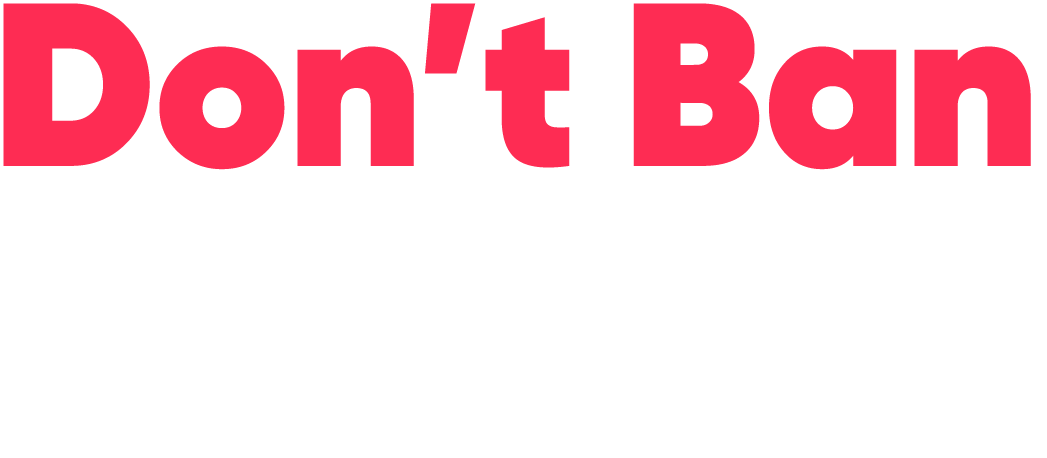
Equality in the workplace is one of the most important economic issues of our time.
Don’t Ban Equality is a coalition of 1,000+ businesses, large to small, located in all 50 states, publicly traded and private, U.S. based and globally headquartered, making the case that abortion access is a workforce and economic issue.
Worker Sentiment
By a 2:1 margin, employed adults prefer to live in a state where abortion is legal and accessible, and two-thirds of college educated workers will not take or apply for jobs in restrictive states.
Public Support
Recent data affirms broad national support for abortion — Gallup polls show 85% of Americans believe abortion should be legal in at least certain circumstances [as of May 2025]
Cost of Living
Nearly 9 in 10 people (87%) prefer that the government improve conditions for parenthood (cost of healthcare, cost of living, cost of childcare, paid leave, etc.) over banning or criminalizing abortion.
Economic Impact
The economic losses from existing abortion restrictions, including labor force impact and earnings, cost state economies an estimated $133 billion annually
Access Matters
Access to reproductive healthcare is a core business issue because it impacts operations, benefits, culture, workforce health and safety, and competitiveness for talent – and it is backed by bipartisan public opinion.
When everyone is empowered to succeed, our companies, communities and economy are better for it.
These businesses stand with Don’t Ban Equality
These are just some of the businesses that understand that restricting reproductive healthcare negatively affects business efforts to promote workplace equity, build diverse and inclusive workforces; recruit top talent across states, and ensure the well-being of workers, communities, and the economy.
23 and Me
Amalgamated Bank
Atlassian
Asana
Ben & Jerry’s
Benefit Cosmetics
Box
Bumble Inc.
Burt’s Bees
Canva
COS
Creative Artists Agency
Deed
Dove
e.l.f. Beauty
Eileen Fisher
Etsy
Fenty
FILA
H&M US
J. Crew
Levi’s
Logitech
Lululemon
LUSH Cosmetics
Lyft
Madewell
Match Group
Mejuri
Michael Stars
Nordstrom
Nudestix
OkCupid
Patagonia
Rent the Runway
Seventh Generation
Stitch Fix
TAZO tea
The Body Shop
Tinder
Tony’s Chocolonely
Twilio
Unilever
United Talent Agency
Vimeo
Warner Music Group
Yelp
Zendesk
To access a regularly updated database of corporate responses to the overturning of Roe v. Wade, click here.





